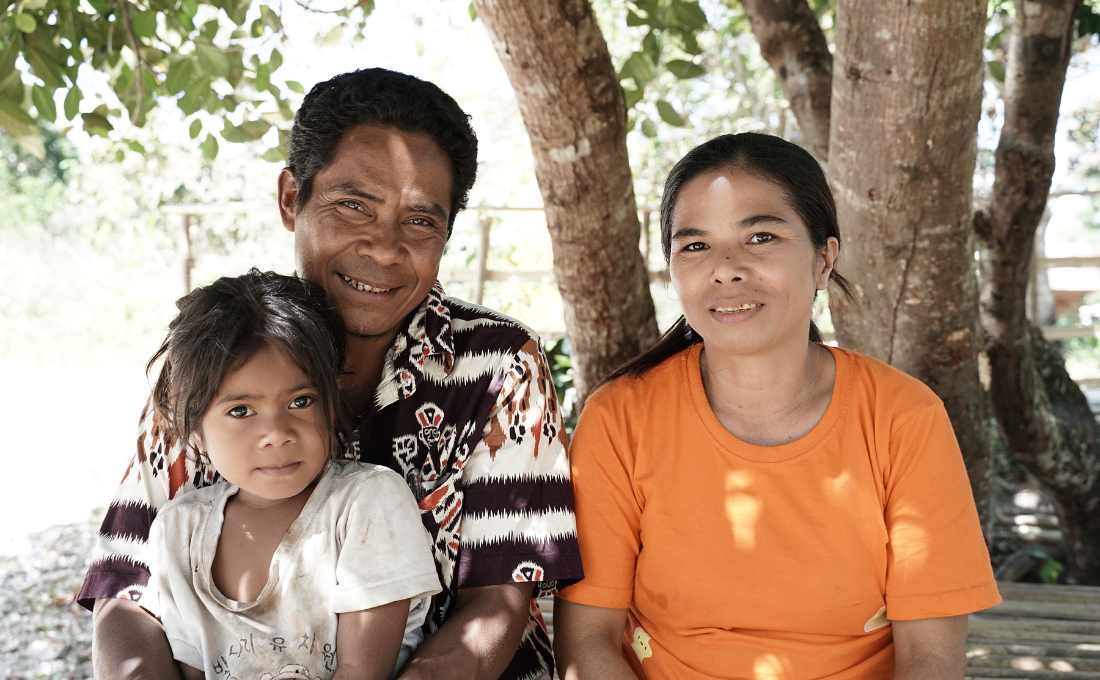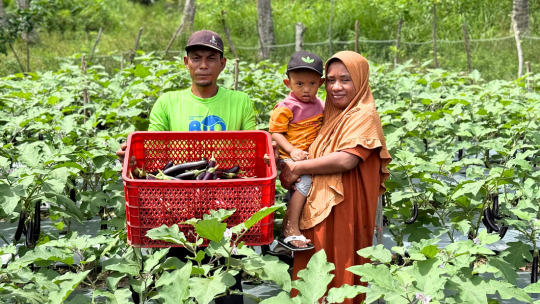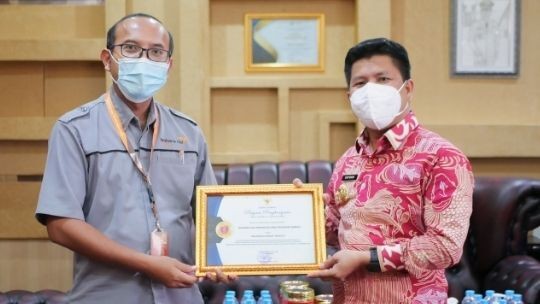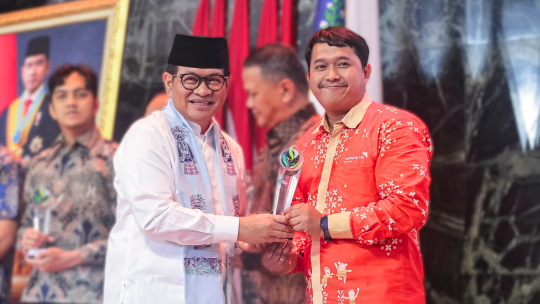Parenting Determines the Happiness of Children and Parents

"I carried a grudge against my father that lasted into adulthood. During the PDC training, I realized the importance of healing so that I don't become a perpetrator for my children or other children. At that moment, I decided to learn to forgive my father," said Rev. Sepri, a PDC participant from one of the GMIT posts in South Central Timor Regency.
Have you ever asked your children: What do they understand about a happy life? Are they happy right now?
Parents are responsible for nurturing and caring for the growth and development of their children and creating a safe and loving environment. Unfortunately, there is no school for parents that can make them strong in their parenting role. The current emergency of violence against children and women demonstrates how complex and difficult the task of raising children is.
WVI is working synergistically with its partners to realize child protection through programs that directly target children, communities, families, and parents, such as Parenting with Love (PDC), which consists of positive parenting principles and skills.
The PDC module is an adaptation of World Vision International's Faith-Based Core Project Model (FB-CPM) 'Celebrating Families', which responds to the question of a young boy from Mali when asked about a prosperous life, "Can you teach our parents to hold us back in their hearts?". This question was expressed during the Listen to Children Together Training.
A year and a half later, in the same activity, a mother asked, "Can you teach us how to raise and care for our children properly?". These two questions convey a strong message about how children want to be loved and parents want to show love to their children, but there is a difficulty in understanding love, grace, goodness, forgiveness, and gratitude.
PDC provides new insights into the importance of healing from traumatic childhood experiences in order to appreciate the opportunity to learn in the present and weave hope for the family. Healing will keep parents and caregivers from violence in parenting. After seeing the change in his family, Rev. Sepri realized the great cultural challenge on the island of Timor. He is committed to developing the capacity of himself and the congregation to start a movement that is in the best interests of children and women.
According to the 2022 Online Information System (SIMPONI) data, the majority of cases of violence against children in South Central Timor Regency involve sexual intercourse with a minor by a close relative, followed by child molestation, domestic violence, abuse, child gang violence, attempted rape, and broken promises of marriage. The government, through the DP3A, has made efforts to handle each case that comes in until it reaches a court decision, providing housing, and supporting transportation costs during the legal process. However, all these efforts have not been maximized due to limitations in knowledge, parenting skills, and the strong influence of patriarchal culture.
For societies with cultures like those on Timor Island, the role of the "three pillars" (religious leaders, traditional leaders, and the government) is highly strategic. Together with the "three pillars," WVI, through the Channel of Hope Child Protection and Gender, is increasing capacity to address the range of theological and cultural views that underlie harmful practices against children and women. Furthermore, with PDC, it is improving knowledge and skills in positive parenting within families.
Leaders are mobilizing communities to reduce the number of cases of violence against children and women in their areas. Together with parents who have been trained in PDC, they are forming Parent Support Groups (PSGs). PSGs are also developing towards strengthening the family economy through various empowerment programs and Saving for Transformations (S4T). Women are given the opportunity to learn more through the Women's School (Skol Bife) initiative supported by DP3A.
In addition to these groups, WVI also supports child services through the initiative of the Inclusive Adolescent Child Leadership Development Module (MKARI) to strengthen children's groups and encourage child participation in the Church. The impact experienced has been shared to the classical, across districts, and also to the Province.
Child-Friendly Church (GRA) provides an opportunity for the growth of the Church as a holistic service place to ensure that children's rights are fulfilled from all forms of violence, exploitation, vulnerability, and discrimination, both in the Church environment, Church-owned service institutions, and families.
Five stages of GRA development:
-
Commitment: The Church maps out its potential, demographics, and vulnerability risks. It is necessary to involve the government to understand IDOLA 2030.
-
Planning: The Church conducts socialization, institutional strengthening, and the formation of a GRA Team.
-
Formation: The Church conducts workshops with stakeholders and establishes strategies for child group participation.
-
Development: The Church and government share roles and resources. Evaluation, documentation of good practices, and reporting need to be carried out.
-
Replication: The Church has fulfilled all stages sustainably through various strengthening and mentoring activities from the church council/Synod/Church Council that works with the government and is ready to provide examples of good practices to other churches in its area that will initiate GRA. The Church at this stage can be a mentor to other churches that want to implement GRA.
Author: Nathalia M. Nunuhitu (Faith and Development Manager)
Editor: Mariana Kurniawati (Communication Executive)



